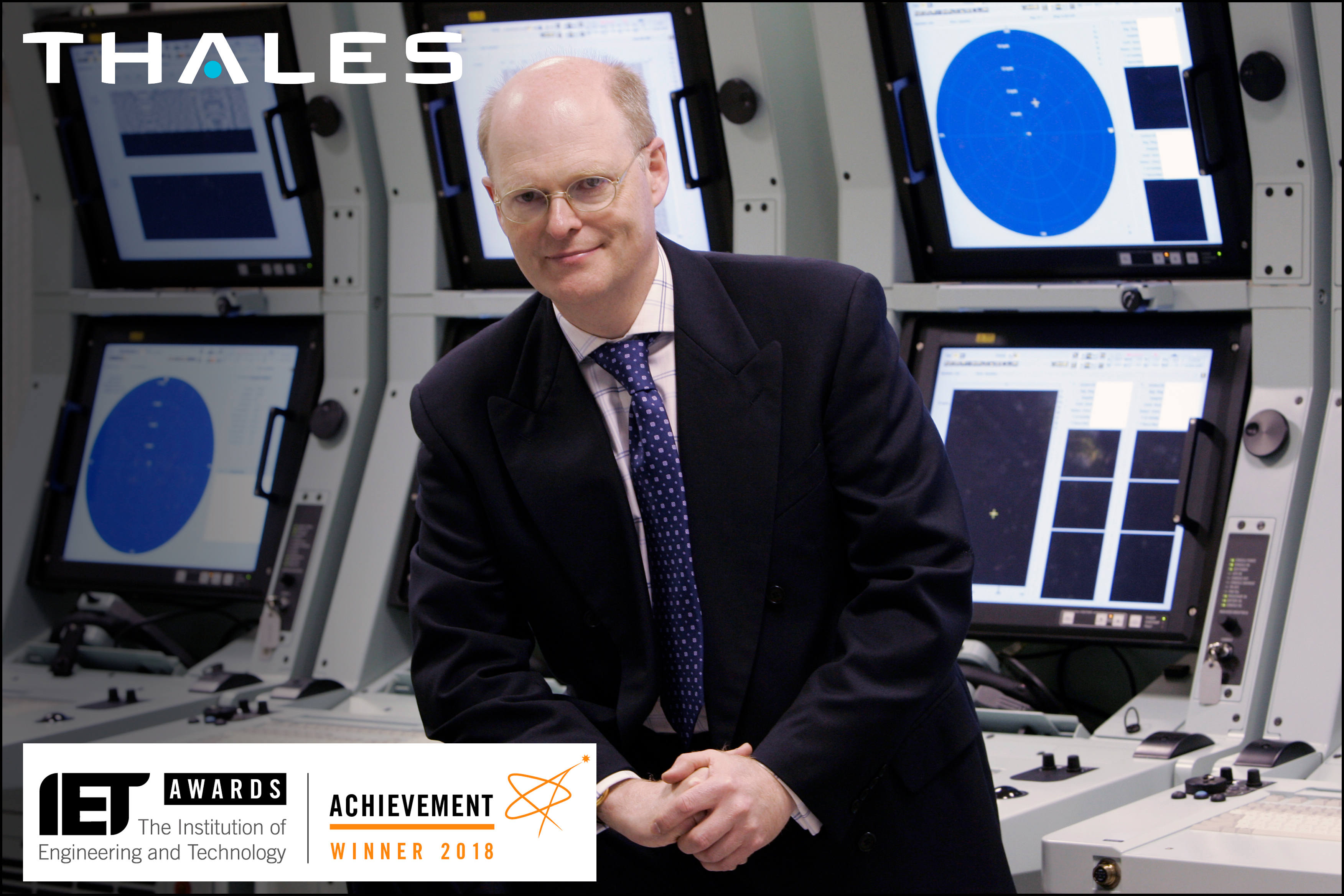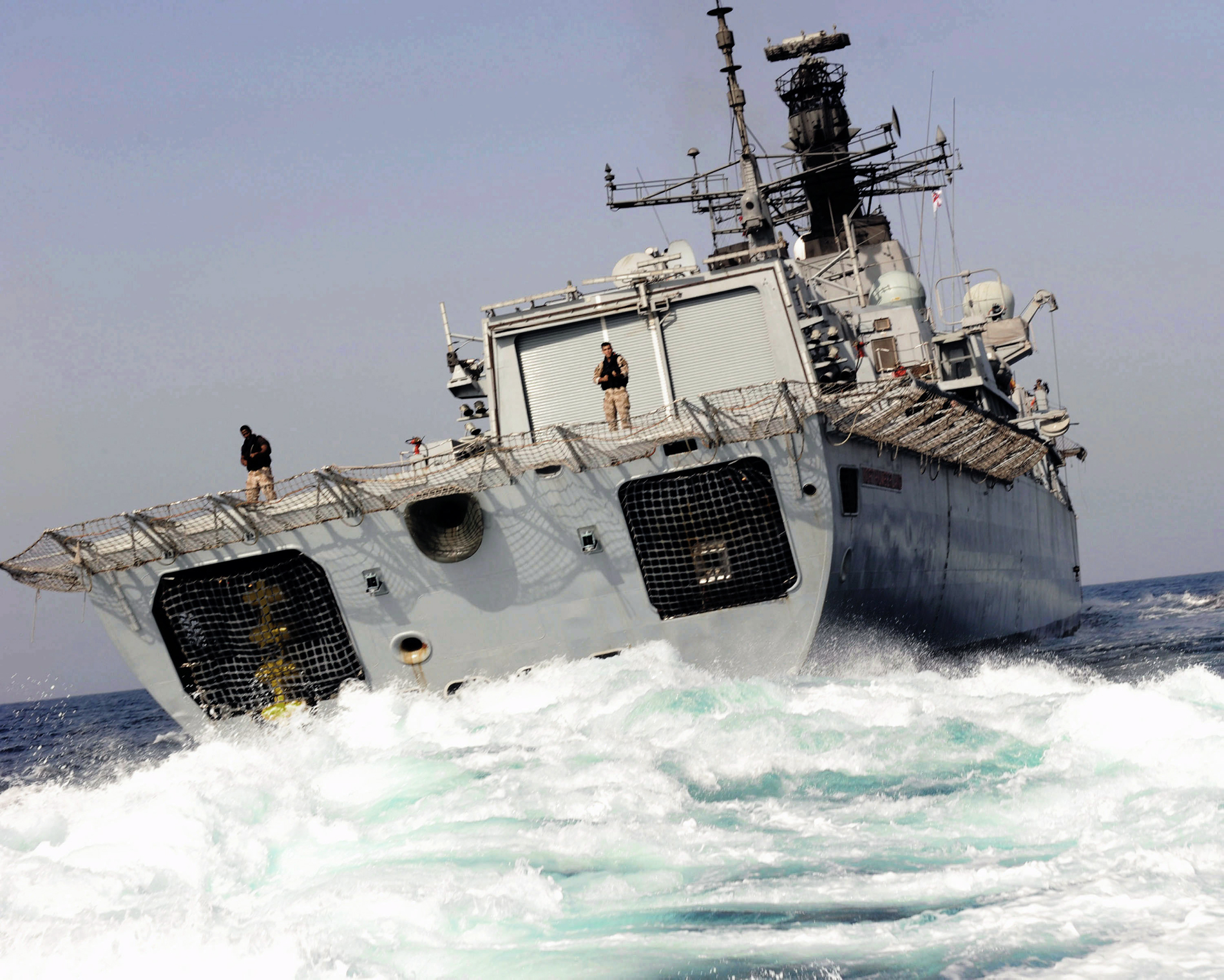Dr Paul Gosling, VP Engineering UK, recognised for contribution to development of sonar
Thales UK’s most senior engineer has been recognised for his exceptional contribution to the development of sonar with a prestigious award by one of the world’s largest engineering institutions.
Dr Paul Gosling, Vice-President Engineering UK, was presented with an Institute of Engineering and Technology (IET) Achievement Medal at a ceremony in London on November 14.
IET Achievement Medals honour individuals who have made an outstanding contribution to the advancement of science, engineering and technology in any sector or activity within the scope of the institute.
Dr Gosling collected his prize amongst other esteemed engineers and technicians at the IET Awards ceremony hosted by Dr Emily Grossman.
He was recognised for his major contribution to the development of state-of-the-art sonar systems for Royal Navy ships and submarines.
Paul’s experience in engineering spans over 30 years after initially studying physics at Warwick and Oxford. In his current role, he is responsible for around 2500 engineers and scientists working on a variety of R&D projects spanning Aerospace, Space, Security, Transportation and Defence sectors.

During his career with Thales, he personally led the technical development of the Royal Navy's two principal sonar systems in operation today which play a critical role in protecting UK and international assets.
Sonar engineering
Sonar 2076 is the world’s most advanced submarine-based sonar and equips the Astute Class submarine, the Royal Navy’s most advanced class of boat.
Paul was also heavily-involved in the development of Sonar 2087, a powerful anti-submarine warfare system fitted to Type 23 frigates and the future Type 26 ship.
Sonar 2087 is a sophisticated towed array system, which enables warships to hunt submarines at considerable distances and detect them beyond the range from which they can launch an attack.

The Royal Navy currently operates its frigates with Merlin helicopters fitted with Thales FLASH-dipping sonar which can be used to pinpoint the submarine from the air. The Navy has described the combination of 2087 and FLASH as ‘world beating’.
I am honoured to receive this award from the IET. Thales has a deserved reputation as being global leaders in sonar technology and maritime sensors and it has been incredibly exciting as an engineer to play a part in that ongoing story.
People don’t often get to see it, but engineering plays an integral part in our everyday modern lives. There are not many jobs where you get do so many diverse and fascinating roles, such as working with the navy to improve submarine sonar defence systems.
Professor Bernard Weiss, Chair of the IET Awards and Prizes Committee, said: “The Achievement Awards allow us to recognise the huge impact that engineers have on all our lives. The winners here today are extremely talented and have achieved great things in their careers, whether they are a young professional demonstrating outstanding ability at the start of their journey or an engineer at the pinnacle of their career.
The winners, who were nominated by their peers, and selected by a panel of IET judges, are leading engineers and technologists across the globe.
The IET
The IET is one of the world’s largest engineering institutions with over 167,000 members in 150 countries. It is also the most interdisciplinary – to reflect the increasingly diverse nature of engineering in the 21st century, including the disciplines of energy, transport, manufacturing, information and communications, and the built environment.
The Institute wants to build the profile and change outdated perceptions about engineering in order to tackle the skills gap. This includes encouraging more women to become engineers and growing the number of apprentices.
Find out more about our UK maritime capability here.